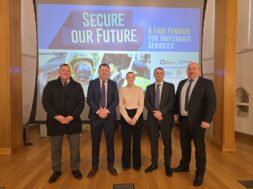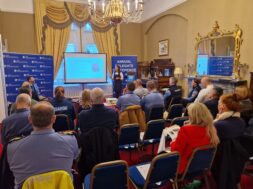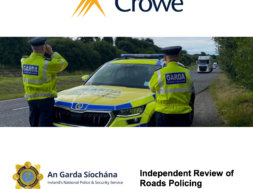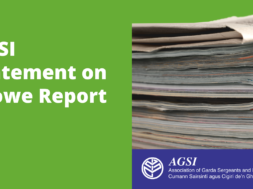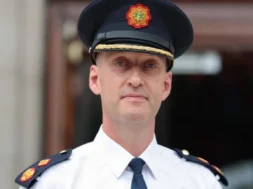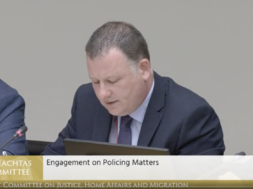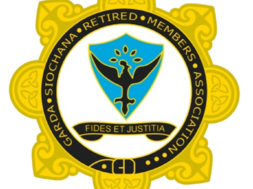Seanad Debate: Allow members of the Garda Reserve who have a minimum of two years service and who wish to become a member of An Garda Síochána proceed to interview level as a matter of course
Adjournment Debate 10 June 2014
Seanad Éireann
The need for the Minister for Justice and Equality to allow members of the Garda Reserve who have a minimum of two years service and who wish to become a member of An Garda Síochána proceed to interview level as a matter of course.
Senator Martin Conway
Reply by Minister of State Sean Sherlock TD on behalf of
the Minister for Justice and Equality Frances Fitzgerald TD
OPENING SPEECH
On behalf of the Minister, who unfortunately cannot be here, I wish to thank Senator Conway for raising these matters and I appreciate the concerns that are involved.
As the Senator will be aware, the Garda Reserve was established to enhance the links between the Garda Síochána and local communities through the deployment of locally recruited volunteers who operate in support of full-time colleagues.
The Minister wishes to put on record her appreciation for the contribution that those who volunteer for service as Garda Reserve members make on a daily basis to the work of An Garda Síochána. Together with full time members, they provide vital assistance to communities and neighbourhoods right across the country.
In terms of the current recruitment competition, any member of the Garda Reserve was entitled to apply for a position for the full time service, provided they met the statutory requirements.
I can advise Senators that, furthermore, the Admission and Appointment Regulations provide that, as part of the competitive selection process organised by the Public Appointments Service for full-time membership of An Garda Síochána, “due recognition to any satisfactory service by the person as a reserve member” shall be given to such candidates. This provision was introduced in order to acknowledge the beneficial experience and skills gained by a reserve member and to allow them, at assessments and at interview, the opportunity to highlight that experience and skill.
In February 2008 the Garda Commissioner established a group to review training and development for Garda and civilian staff in the Garda Síochána. The report of the review group was published in May 2009 and the contents were noted by the Government of the time.
The objective of the Review Group was to make recommendations to improve and reinvigorate Garda training in line with best practice in order to meet the new challenges of a changing society. One of the Key Recommendations identified by the group was that the student/probationer training programme should be radically restructured
The course for Garda trainees is a high level BA course, which necessitates a certain academic capability. The revised training programme stemming from the recommendations of the Review Group was devised in order to better prepare recruits for the modern policing environment.
The main differences between the new and the previous programme is that the new programme carries a greater emphasis on operational policing and focuses on real life scenarios which in turn prepare students for the policing challenges they will face. The new programme will also instil a lifelong learning philosophy for members of the Garda Síochána, with a suite of mandatory and elective courses made available.
The stages in the recruitment process leading up to interviews include assessment tests and exercises, which are, therefore, more rigorous than those entailed in joining the Garda Reserve. Indeed all recruitment stages, including initial tests and exercises, are designed to ensure that candidates will be sufficiently capable of partaking in and passing the BA course.
The interview stage allows Reserve candidates to demonstrate their experience, having a deeper understanding of the work involved as a fully-fledged member. By virtue of their exposure to work in the Garda Síochána, they are in a position to perform well at the structured competency based interview and offer highly relevant examples of how they demonstrated the key competencies required. Interview boards have been briefed in the work of the Reserve and their experience in this context.
I would point out that it is important that all persons wishing to join the full time force undergo the same competitive selection and recruitment process. In doing so the integrity of the process is maintained at all stages of the competition. However, the mechanisms mentioned above give the Reserve members the opportunity to demonstrate their on the job learning acquired as members of the Reserve. This allows them some advantage in the recruitment process.
I can advise the Senators that there are currently 1,192 attested Reserve Gardaí with a further 89 at various stages of training. To date, 40 Reserve members have become full Garda members, and we will, no doubt, see more joining the ranks from this recruitment competition. Garda Reserve members make a real and tangible contribution to policing right across the country and the Minister is fully supportive of its continued development. In this regard, recruitment to the Reserve and training of new Reserve members is ongoing.
In conclusion, the Minister would like to assure the Senator that the Government is and will continue to be, fully committed to the Garda Reserve. The Minister would also encourage Reserve members to apply for the full time force if they are interested in and committed to being a full time member. The assessment process will ensure that those that are successful have the capability both to pass the BA course in Applied Policing, as well as the ability to carry out the important functions of a full-time member.
END

